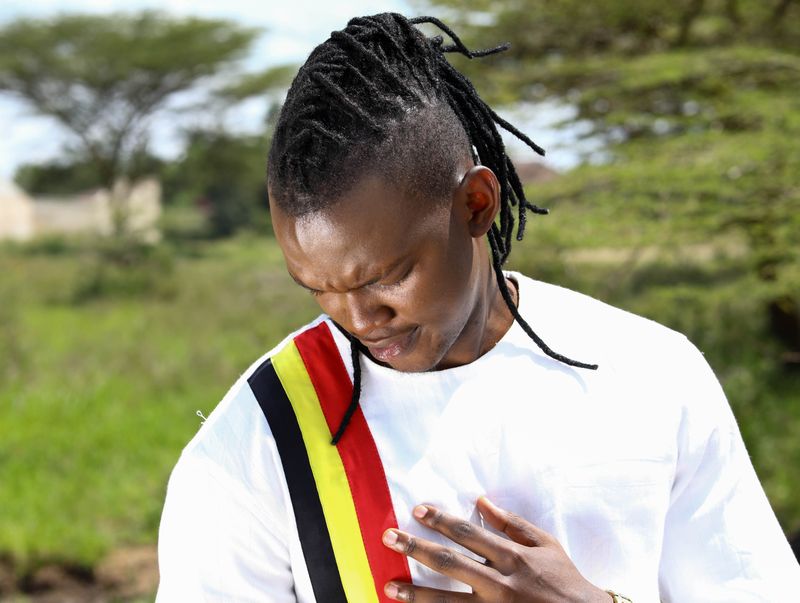- George Alagiah: A Tribute to a Brilliant and Kind Journalist
- The Passing of a Respected BBC Journalist
- Remembering George Alagiah: A Wonderful Human Being
- Alagiah’s Philanthropic and Professional Achievements
- A Life Shaped by Immigration and Assimilation
- A Legacy of Compassion and Resilience
- Editorial: The Importance of Empathy in Journalism
- Advice: Embracing Empathy in Everyday Life
- You might want to read !
George Alagiah: A Tribute to a Brilliant and Kind Journalist
The Passing of a Respected BBC Journalist
On July 25, 2023, the BBC and the world of journalism mourned the loss of one of their most respected and beloved journalists, George Alagiah. At the age of 67, Alagiah passed away after a nine-year battle with cancer. His agent released a statement expressing that he died peacefully, surrounded by his family and loved ones.
Alagiah’s remarkable career spanned over three decades, during which he made significant contributions to British TV news. For the past 20 years, he presented the BBC News at Six, becoming a familiar face for audiences across the country. Prior to this, he was an award-winning foreign correspondent, reporting from conflict zones such as Rwanda and Iraq.
Diagnosed with stage four bowel cancer in 2014, Alagiah courageously battled the disease while continuing his journalistic duties. In October 2022, he revealed that the cancer had spread further. Despite his health challenges, he maintained his commitment to his work up until the end.
Remembering George Alagiah: A Wonderful Human Being
Upon the news of Alagiah’s passing, tributes poured in from fellow journalists, BBC colleagues, and audiences. His agent, Mary Greenham, spoke of his enduring impact, stating that he was deeply loved by everyone who knew him. She described him as a “wonderful human being” who would be greatly missed.
The BBC‘s director general, Tim Davie, expressed sadness at the loss and acknowledged Alagiah’s extraordinary qualities. He highlighted Alagiah’s kindness, empathy, and humanity, qualities that were evident not only in his personal interactions but also in his journalism. Throughout his career, Alagiah’s reporting was marked by his ability to connect with people on a deep level.
Colleagues and friends echoed these sentiments, emphasizing Alagiah’s gentle nature, insightfulness, and bravery. Many remembered him as a mentor and friend, sharing stories of his impact on their lives and careers.
Alagiah’s Philanthropic and Professional Achievements
In addition to his outstanding journalism, Alagiah’s dedication and commitment were recognized through numerous awards and accolades. He won awards for his reports on the famine and war in Somalia and was nominated for a Bafta in 1994 for his coverage of Saddam Hussein’s genocidal campaign against the Kurds in northern Iraq. Amnesty International named him journalist of the year in 1994 for his reporting on the civil war in Burundi, and he was the first BBC journalist to report on the genocide in Rwanda.
Alagiah’s career took him to various corners of the world, where he covered significant global events and human rights issues. From Kosovo to India, Brazil to Afghanistan, he shed light on stories that often went unnoticed. His interviews with world leaders, including Nelson Mandela and Kofi Annan, added depth and insight to his reporting.
Throughout his career, Alagiah’s work exemplified his dedication to advocating for justice and exposing the human stories behind global conflicts and crises.
A Life Shaped by Immigration and Assimilation
George Maxwell Alagiah was born in Colombo, Sri Lanka, before his family emigrated to Ghana due to the ethnic violence prevailing in their homeland. They later moved to England when Alagiah was a child, seeking a better life and education for their children.
Alagiah’s experiences as an immigrant and his journey of assimilation played a significant role in shaping his perspective as a journalist. In his childhood, he encountered racism and the challenges of having a “funny name.” Yet, he found solace and acceptance within his school community, where he became the “right sort” of foreigner.
His upbringing and exposure to different cultures instilled in him a sense of empathy and a curiosity about the world. This empathy became his greatest strength as a journalist, allowing him to connect with people from diverse backgrounds and shine a light on their struggles.
A Legacy of Compassion and Resilience
George Alagiah’s resilience in the face of adversity, his unwavering compassion, and his commitment to journalistic integrity leave behind a lasting legacy. He will be remembered as a journalist who not only reported the news but also sought to understand and amplify the voices of those affected by it.
As we mourn his passing, we have an opportunity to reflect on the qualities that made Alagiah such an exceptional journalist. His kindness, empathy, and humanity serve as a reminder of the impact that one individual can have in shaping public discourse and promoting understanding.
Editorial: The Importance of Empathy in Journalism
George Alagiah’s remarkable career serves as a testament to the power of empathy in journalism. In an era characterized by sensationalism and divisiveness, his approach to storytelling offers a valuable lesson.
Journalists have the responsibility to not only report the facts but also convey the human side of the story. Alagiah’s ability to connect with people and his genuine concern for their well-being set him apart. He understood that empathy is not just a moral obligation but also a powerful tool for effective journalism.
In today’s fast-paced media landscape, it is crucial for journalists to remember the importance of empathy. By understanding and conveying the lived experiences of those they report on, journalists can foster understanding and compassion among their audiences.
Alagiah’s legacy should serve as a reminder to the industry as a whole that empathy is not a weakness but a strength. It is through empathy that journalists can bring about meaningful change and give a voice to the voiceless.
Advice: Embracing Empathy in Everyday Life
While George Alagiah’s impact as a journalist is undeniable, his legacy extends beyond the newsroom. His example of empathy can inspire us all to be more compassionate in our daily lives.
Embracing empathy means taking the time to listen, understand, and support those around us. It means recognizing the struggles and triumphs of others and treating them with kindness and respect.
In a world that often seems filled with divisiveness and discord, let us remember George Alagiah’s example and strive to be more empathetic individuals. By doing so, we can contribute to a more compassionate society and create meaningful connections with others.
George Alagiah’s passing is a loss not just for the BBC and the world of journalism but for all those who valued kindness, empathy, and the power of storytelling. May his legacy continue to inspire generations of journalists and individuals alike.

<< photo by Andrei Photo >>
The image is for illustrative purposes only and does not depict the actual situation.
You might want to read !
- Remembering George Alagiah: Honoring the Fearless and Kind BBC Journalist
- Remembering George Alagiah: A Fearless and Kind BBC Journalist Who Made an Impact
- Tyler Glasnow’s Dominant Performance Not Enough; Orioles Claim Victory
- Twitter se réinvente : découvrez le nouveau visage de X
- Israeli Parliament Passes Controversial Judicial Overhaul Bill: A Blow to Democracy?
- Max Verstappen Secures Victory in Hungarian Grand Prix, Shaking Up F1 Standings
- Canada Battles to a Scoreless Draw Against Nigeria in FIFA Women’s World Cup: A Tale of Missed Chances and Defensive Brilliance
- “In The Shadow of Trinity: Examining the Flaws and Brilliance of ‘Oppenheimer’”
- Rethinking Trudeau’s Cabinet: Clearing Dead Wood for Fresh Faces




